Latest News
Struggling to Build Solidarity Across Lines of Race, Class and Gender
A Pulitzer Prize winning journalist travels to a factory in Indiana and discovers the working class.

What do highly educated upper-middle-class people know about the life of blue collar workers? Farah Stockman, a graduate of Harvard, journalist and member of the New York Times editorial board, believes that the answer to that question for most upper-middle-class people, including herself, is not much.
Stockman admits in her book American Made: What Happens to People When Work Disappears that she was a “faculty brat” — her parents were tenured professors — who didn’t know much about working-class people. That changed when she traveled to Indianapolis on a three-year assignment to observe workers in the Link-Belt factory that produced steel bearings. She embedded herself in the lives of three workers, Raleigh “Wally” Hall, an African American; Shannon Mulcahy, a white woman; and John Feltner, a white male and United Steelworkers vice president at the factory.

Farah Stockman.
She discovered the experiential chasm that separates the lives of working-class people from the elite who write the laws, run the economy and produce the culture. Working-class people, she recognized, work and live under constant supervision: watched and controlled by factory bosses, police, social workers and school officials who monitor their children. In the case of Link-Belt, their livelihoods were destroyed by a distant private equity firm that eventually moved the factory to Mexico.
While United States manufacturing jobs have experienced a post-pandemic rebound, tens of thousands of tech workers have been laid off during the past year, with Google, Microsoft and Amazon showing workers the door. As we head towards the 2024 presidential election year, Republicans and Democrats are trying to shape a message and program that appeals to the very people that Stockman followed. While published in 2021, American Made examines the economic fissures that have ongoing relevance to our politics and culture.
Stockman, who is Black, also wrestled through honest but difficult conversations with Black and women workers about how racism and sexism limited opportunities for advancement, and with white workers about the potential drawbacks of insisting on the language of “white privilege” and “white supremacy.” She also explores how when blue-collar workers lose their jobs, the results can be deadly.
Stockman won a Pulitzer Prize for commentary in the Boston Globe in 2016. Capital & Main spoke to her from her home in Cambridge, Massachusetts.
This interview has been edited for clarity and brevity.
Capital & Main: You mainly follow a white male, a white female and an African American man. You write that in their own ways they embodied the struggles of the labor movement, the civil rights movement and the women’s movement. How so?
Farah Stockman: Shannon worked her way up from being a janitor to being the first woman to run the furnace, which was a highly paid job. We don’t often think of blue-collar women breaking glass ceilings, but it was a big deal for her to be able to run one of those furnaces, and it made a huge difference to her family in terms of the wages she was bringing home. She was a symbol of the blue-collar women’s rights movement.
The same is true of Black workers who often were assigned the dirtiest and lowest paid jobs. The struggle for Black workers to access the higher paid jobs and be accepted by unions and earn the same pay as a white workers was part of the civil rights movement. It really opened my eyes.
The book is also about class. You write about how the professional class — people like you — sets the agenda politically, economically and culturally and reaps the benefits but that it’s blue-collar people that often pay the price of their dominance.
I didn’t have this analysis when I started, but the more I heard their stories and the more research I conducted, the more I had to admit that they have reason to be angry about what the “elites” have done. People ask “why do [blue collar people] vote against their interests?” But most of us don’t know what their interests are because we don’t know working-class people. We don’t understand the economics of their lives. The educated classes, the people with money, the people with capital, have done well under globalization and NAFTA. Blue-collar people have not.
“‘Privilege’ and ‘supremacy’ are alienating terms to many white workers.”
There was a real sense that race, gender and class got mixed up and shaken around in the factory. How did that work?
When we talk about the working class, for a lot of people that is shorthand for a white guy working in a factory. But at Link-Belt, 40% of the workers were Black, with a number of Black women. Everyone had a lot in common economically. They were doing the same jobs and they were all in the union. But they each saw the closing of the factory differently, which made it difficult to stand together with one voice when the factory was closing. In the 1960s, Wally’s uncle, who was Black, had to learn his job by watching from afar because the white man who was to train him refused to speak to him. The same thing happened to women. So solidarity was often negated by race and gender.
Jumping off from that, John, a white steelworkers union vice president whom you followed, told you that the term “white privilege” really pissed him off. It was a characterization that he simply could not relate to.
John was the grandson and great-grandson of coal miners from Kentucky who had fought wars with the coal companies for decent pay and safer working conditions. So for a guy like John, he felt like nobody gave him anything because he was white. So when you use the term “white privilege,” it was as if the white boss man gave them what they wanted on a plate.
The labor movement for him was a deep presence in his life. I don’t want to excuse his blind spot about race, because he definitely had one. He didn’t recognize his advantage and the heavier burdens that Black workers had. His union would have been stronger if he could have acknowledged that. But here is a guy whose wages dropped by a third over 10 years. He was in no mood to hear a college educated person from the New York Times lecture him about his privilege.
So “privilege” and “supremacy” are alienating terms to many white workers. It would be more effective to say something like ‘working-class white people have it hard, but Black workers have it the hardest.’ I think we should back away from terms that will simply shut down the conversation.
One of the key insights of the book, and one that most professionals don’t recognize about working-class people in so many occupations, is the degree to which they are under constant surveillance. That was one of the things that seemed to surprise you.
Yes. For instance, I work at home and as long as I get my work in, nobody asks me how many hours it took or if I worked at night or in a local coffee shop. At the factory it was a baby-sitting kind of culture or like you were in school. If you were late three times you were out. The factory was like a parent, which meant there were obligations as well. If you lost someone from your family, somebody from the union would show up at the funeral with a union Bible.
“It’s interesting to see American policy change. Now we’re investing a lot in bringing manufacturing home because we’re scared we might have conflict with China.”
American Made is about the importance of jobs for blue-collar people. How did your understanding of that working-class world shift as you got to know the workers you followed?
At first, when I met these workers I thought, ‘Why can’t they just find other work? Is this such a big deal for them to lose their jobs in this way?’ Many economists will tell you that it’s not a big deal because there are better jobs waiting for them. I came to understand what they had lost and what these jobs really meant to them. It really takes an understanding of that blue-collar world to fully understand what happens when a factory closes and why some people never get over it. Some who got new jobs in another factory never saw their wives because they had lost seniority and at 40 or 50 years of age had to go back to working the night shift.
The last three presidents have said the same thing about jobs. They would do something to stop corporations from shipping production to low-wage countries. Has anyone delivered on that promise?
It’s interesting to see American policy change. Now we’re investing a lot in bringing manufacturing home because we’re scared we might have conflict with China. Suddenly we’re totally dependent upon everything they make, including our drug supply. There is a growing awareness that we’ve hollowed out our ability to produce things. So to a certain extent they are delivering, but reorienting the American economy takes time.
Biden has been going around talking about raising wages in places like Mexico, and allowing workers to join unions in low-wage countries. The argument from some economists was that jobs going to other countries would be great because we can buy cheap widescreen TVs. That’s a Walmart economy, where Walmart is the only place to shop and the only place to work.
Well, we might start with making it easier to form and join a union here.
That’s true. But I like that Biden is trying. Presidents used to only talk about protecting intellectual property and investments, so at least this is a shift when you have a president talking about protecting workers’ rights overseas.
A book that I read in college, The Hidden Injuries of Class by Richard Sennett, describes a fight for dignity and the badges of self-worth that many working-class people struggle with. Did you see that with the people you followed?
Each of the workers could remember the few times when a boss or executive would come on the factory floor and actually talk to them or shake their hand. Most of the time they felt devalued by the company. The people with college degrees who ran things didn’t think they had much knowledge and that a monkey could do what they do. They felt like they were disposable. The company, Rexnord, which owned Link-Belt, was actually passed from one private equity firm to another over the years. The workers felt that the company couldn’t wait to get rid of them.
“There is a deep alienation with our political culture in the white working class that has been passed down through generations.”
And yet all of them took pride in what they were doing.
Yes. They were proud to be earning their own check. A lot of liberal people who care about the working class say we should just pay our taxes and send them money in the mail — a universal basic income. Not a single steel worker I interviewed wanted to live off the government. They didn’t trust the government to help them. That’s part of why the Democratic Party is losing the support of working-class people.
The terms “conman” and “scam artist” come up a lot in your book when workers describe a politician or someone trying to put something over on them. But many of the white workers, at least, voted for the biggest conman to appear on the political stage. How do you explain that?
I feel like there is a deep alienation with our political culture in the white working class that has been passed down through generations. Shannon’s father taught her not to vote. That was his political teaching. No group or party is better than any other. Compare that to Wally, the Black man I followed, who was brought to a voting place at a young age and taught to vote.
Shannon’s father voted for the first time in 2016, when he voted for Trump. That conman knew how to get people out to vote because he was saying things they were waiting decades for someone to say — promising to stop companies from sending their jobs overseas. And so was Bernie Sanders, who was saying many of the same things about a “rigged” economy. I could give you quotes where you would not be able to tell if it was Sanders or Trump who was speaking.
What one policy would you implement if you could to most help working-class people?
Universal health care. We are moving to an economy where people are working at gig jobs, or working under the table or cobbling together a couple of different jobs. We have to move away from a system where workers get their health care from an employer because workers don’t stay in the same job for 30 years. For the workers in my book, health care came up a lot in every person’s life. When you lose your job, you have a much greater risk of losing your life, so universal health care is essential.
Copyright 2023 Capital & Main

-

 Latest NewsJune 17, 2025
Latest NewsJune 17, 2025A Coal Miner’s Daughter Takes on DOGE to Protect Miners’ Health
-
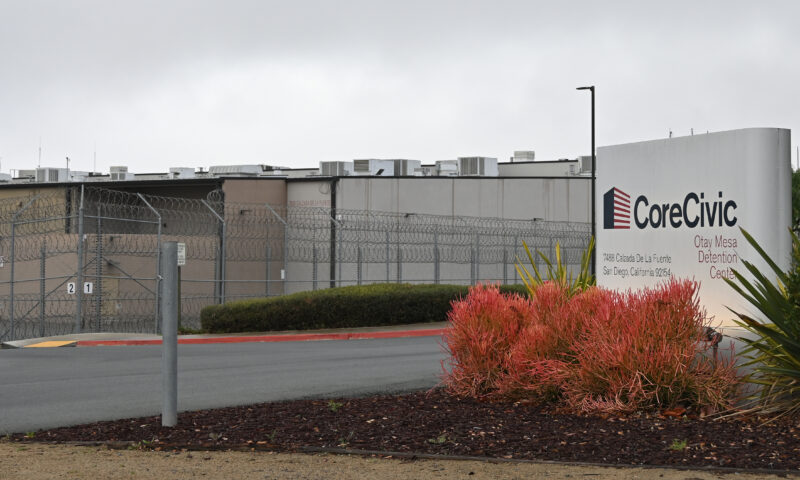
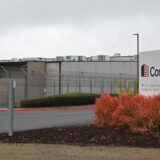 Beyond the BorderJune 10, 2025
Beyond the BorderJune 10, 2025Detained Man Says ICE Isn’t Treating His Colon Cancer
-

 Column - State of InequalityJune 12, 2025
Column - State of InequalityJune 12, 2025‘Patients Will Suffer. Patients Will Die.’ Why California’s Rural Hospitals Are Flatlining.
-
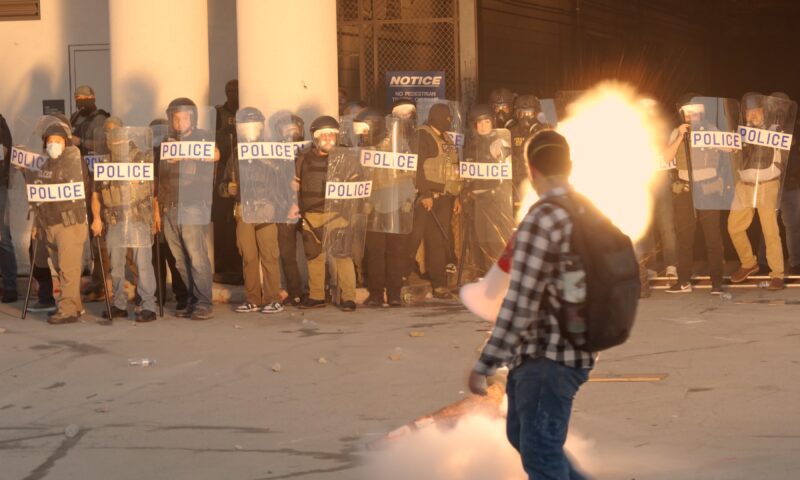
 Featured VideoJune 10, 2025
Featured VideoJune 10, 2025Police Violently Crack Down on L.A. Protests
-

 Column - California UncoveredJune 18, 2025
Column - California UncoveredJune 18, 2025Can Gov. Gavin Newsom Make Californians Healthier?
-
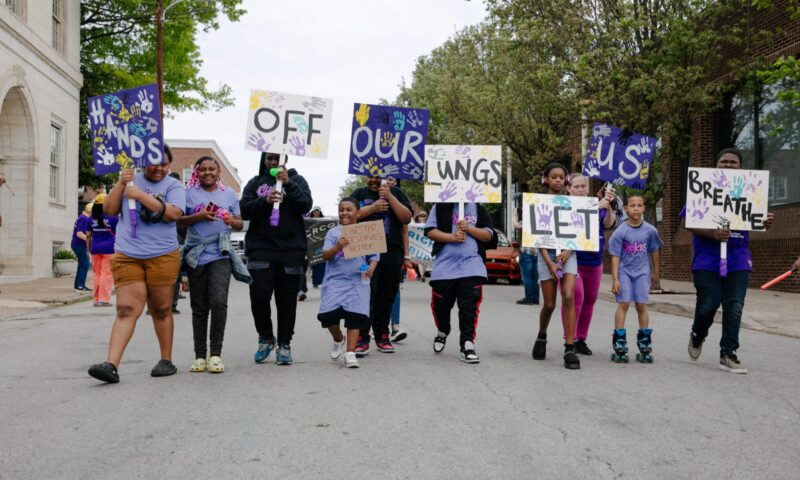
 The SlickJune 6, 2025
The SlickJune 6, 2025Pennsylvania Has Failed Environmental Justice Communities for Years. A New Bill Could Change That.
-

 Latest NewsJune 6, 2025
Latest NewsJune 6, 2025Trump Won Big in Kentucky. Medicaid Cuts Could Hit It Hard.
-
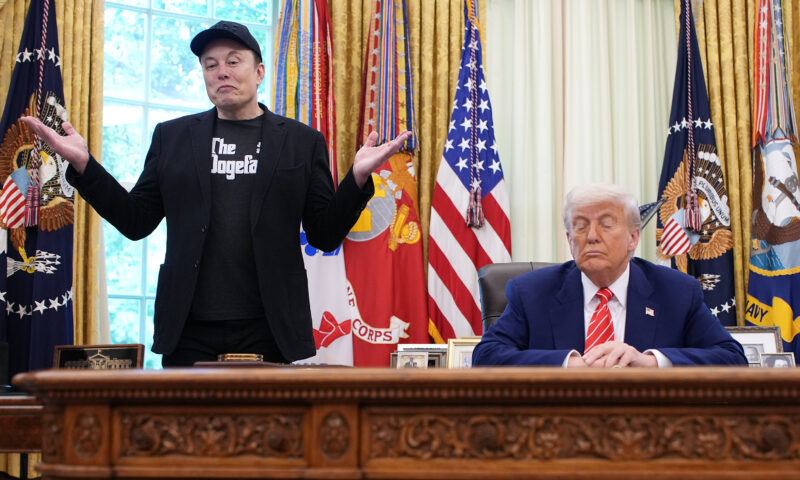
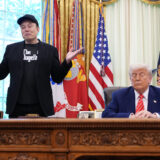 Latest NewsJune 6, 2025
Latest NewsJune 6, 2025Before Attacking Each Other, Musk and Trump Struck Blows Against Veterans, Children, the Hungry and the Sick

